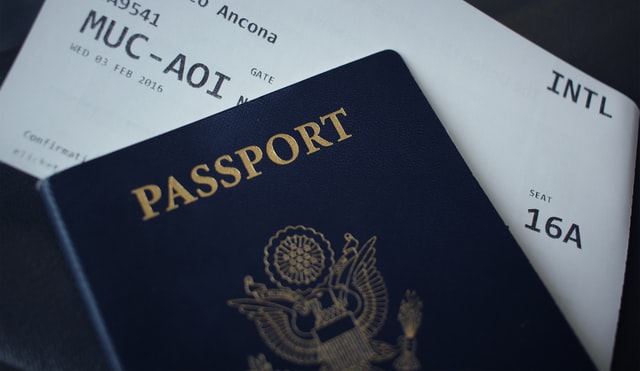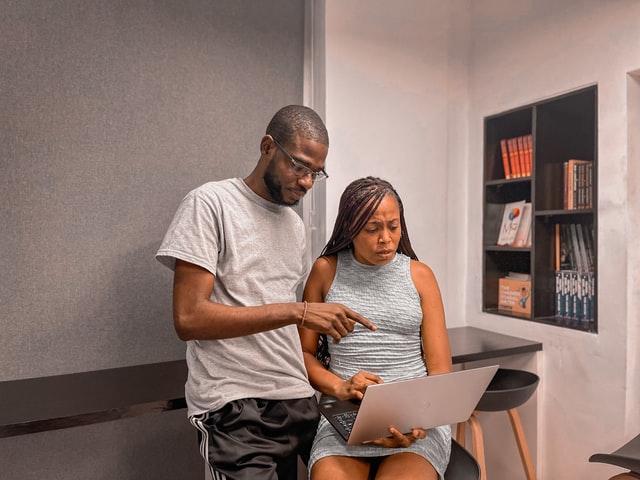If you are looking for a country with a stable economy, promising career opportunities, great social benefits, a quality standard of living, etc., Australia is the place.
Australia, which is also a continent, is an excellent place for anyone seeking to pursue a career.
However, it would help if you had a visa to work in Australia as a Nigerian.
Fortunately, in this post, we will unveil the Australian work visa requirements for Nigerian citizens.
Table of contents
Australian Work Visa

The Australian immigration service opens the door for skilled workers worldwide to come to Australia and fill the labour shortages in various sectors.
Hence, Nigerians with the skills and qualifications to contribute to Australia’s economy can move to the country by applying for an Australian work visa.
There are different types of Australian work visas, and the kind you can use depends on your qualifications, skills, age, profession etc.
Types of Australian Work Visa
As earlier stated, there are many types of Australian work visas, but some will be discussed below:
- Temporary Skill Shortage Visa (subclass 482)
- Temporary Graduate Visa (subclass 485)
- Skilled Nominated Visa (Subclass 190)
- Skilled Independent Visa (Subclass 189)
- Employer Nomination Scheme Visa (Subclass 186)
Temporary Skill Shortage Visa (subclass 482)
The Temporary Skill Shortage visa is for Nigerians whose approved sponsor has nominated for a skilled position that no Australian can fill.
This visa replaced the Temporary Work (Skilled) visa (subclass 457) in 2018.
Applicants must also meet the English language requirements to qualify for this visa.
This visa has various streams: the Short-term stream, Medium-term stream, Labour agreement stream, and Subsequent entrant.
Depending on your chosen stream, you can stay in Australia for 2-4 years or as long as your visa is valid.
Note that your job position must be on the required occupation list for some of these streams.
Temporary Graduate Visa (subclass 485)
This visa permits Nigerians to live and work in Australia after completing their studies.
However, you must possess the right skills and qualifications for the job position.
This visa has various streams, which include the Graduate Work stream, Post-Study Work stream, Second Post-Study Work stream and Replacement stream.
Applicants must be under 50 and can stay in Australia for 18 months – 5 years, depending on the stream they choose.
Skilled Nominated Visa (Subclass 190)
This visa permits Nigerians nominated as skilled workers to work and live in Australia as permanent residents.
You can also bring your family members to Australia with this visa.
You must meet all the skill and language requirements to be eligible for this visa.
Skilled Independent Visa (Subclass 189)
This visa permits invited workers to come to Australia to live and work.
A sponsor, in this case, need not nominate applicants. You only need under 45 to be invited for the Point tested stream.
Other streams include the New Zealand stream and the Hong Kong stream.
Employer Nomination Scheme Visa (Subclass 186)
This visa allows skilled workers nominated by an Australian employer to come to Australia to live and work.
You must have the necessary skills to qualify and meet the health and character requirements.
This visa has the following streams; Direct Entry, Labour agreement stream and Temporary Residence Transition stream.
Other work visas include Business Owner (subclass 890), Global Talent visa (subclass 858), Skilled Work Regional (Provisional) visa (subclass 491), Temporary Activity visa (subclass 408) etc.
Australian Work Visa Requirements

Before we consider the general work visa requirements, it is essential to note that Australia uses a point-based system to select suitable candidates for some visa categories, such as:
- The Skilled Independent visa (subclass 189)
- The Skilled Nominated visa (subclass 190)
- Skilled Regional (Provisional) visa (subclass 489) – the invited pathway
- Skilled Work Regional (Provisional) visa (subclass 491)
Bear in mind that every Australian visa has its specific requirements.
However, all the above visa categories require your job position to be on the skilled occupations list.
Also, applicants who take the Skilled Points Test must have a minimum of 65 points. The test examines candidates based on the following:
Work Experience
You would get points based on how many years you have worked in the relevant field and whether you worked in Australia or outside Australia.
The point breakdown is as follows:
Work Experience outside Australia
| Duration | Points Awarded |
|---|---|
| Less than three years of experience | 0 points |
| More than three years and less than five years of experience | 5 points |
| More than five years and less than seven years of experience | 10 points |
| Eight years or more of experience | 15 points |
Work Experience inside Australia
| Duration | Points Awarded |
|---|---|
| Less than one year of experience | 0 points |
| More than one year and less than three years of experience | 5 points |
| More than three years and less than five years of experience | 10 points |
| More than five years and less than eight years of experience | 15 points |
| Eight years or more years of experience | 20 points |
Qualification
Candidates would also be accessed by their qualifications, and the points breakdown is given below:
| Qualification | Points Awarded |
|---|---|
| A qualification or reward that is recognised by the relevant assessment authority | 10 points |
| A diploma or trade qualification | 10 points |
| A bachelor’s degree or Master’s degree | 15 points |
| A PhD | 20 points |
If Nigerian applicants study at an Australian university, they may be given an additional 5 points.
Age
The points awarded for the applicant’s age are given below:
| Age | Points Awarded |
|---|---|
| Over 18 and younger than 25 | 25 points |
| Over 25 and younger than 33 | 30 points |
| Over 33 and younger than 40 | 25 points |
| Over 40 and younger than 45 | 15 points |
Language
You must prove that you have a good mastery of the English language by taking tests like IELTS and TOEFL.
Here is a breakdown of the English level and points awarded:
| English Level | Points Awarded |
|---|---|
| Competent English | 0 points |
| Proficient English | 10 points |
| Superior English | 20 points |
Partner’s Skills and Qualifications
If your partner is less than age 45, is competent in the English language, is nominated for a skilled job position on the same occupation list as yours, etc., then you can get ten (10) or more points.
Note that you are expected first to lodge an Expression of Interest (EOI) online using SkillSelect. The EOI is not a visa application, and no fee is attached.
Other Requirements include the following:
International Passport
It would help if you had an international passport which must stay valid for at least six months before the expiration date of your visa.
You must also provide copies of your passport data page which must be coloured and scanned.
If you also have previous passports, you have to present those as well.
Australian Visa Application Form
You can fill out the application form online after creating an account.
This form must be filled honestly and in block letters.
Note that if you provide false information, it may affect your visa approval.
Passport Photographs
You are required to submit at least two passport photographs during your application process.
These pictures must not be older than six months and must meet Australian photo requirements.
Therefore, the photos must measure 35mm-40mm by 45mm-50mm, and your whole face must be clear.
The photo’s background must be plain, preferably white, and accessories and glasses are prohibited.
National Identity Card
You must also provide a scanned copy of your national identity card.
It may be optional, and if it is not needed, you will be informed by the visa authorities.
Health Insurance
You must indicate that you have medical insurance that covers your health costs throughout your stay in Australia.
Proof of Sufficient Funds
You must prove that you can support yourself and your family members (if they will be coming with you to Australia) throughout your stay in Australia.
You can provide your bank statements for the past six months or a sponsorship letter if anyone would sponsor you.
Travel Itinerary
You must show your travel itinerary, which shows your trip details.
Hence, your itinerary must include your travel dates, proof that you have bought tickets, duration of visit, etc.
Proof of Accommodation
You must provide proof that you have secured accommodation in Australia.
You can present your hotel reservation or an invitation letter from a friend or family member in Australia if you would be living with them.
Police Clearance Certificate
You must prove that you are law-abiding and have no criminal record.
You can do this by submitting a police clearance certificate.
Proof of Good Health
You must prove that you are in good health by taking medical tests for various diseases such as yellow fever and polio.
Australian Work Visa Application Guide

The following are the processes to apply for an Australian work visa;
A description of how to apply for an Australian work visa
- Fill out the Application Form
Once you have been given employment in Australia, you must open an ImmiAccount online and fill out the application form for the visa you wish to apply for.
This form must be filled out correctly with the required details.
If you are having problems filling out the form, you can also visit the visa application centre, and you will be assisted with your application. - Upload the Relevant Documents
Make sure to adhere to the guidelines on the portal, scan the necessary documents, and upload them online. Your original documents are not required unless it is requested.
- Book an Appointment
You must book an appointment with the visa application centre and visit the centre closest to you on your appointment date.
Your biometric details (photos and fingerprints) will be taken at the centre. You can also reschedule your appointment if the date and time are no longer convenient. - Pay your Fees
You must pay all the visa charges the visa application centre deems applicable.
Keep in mind that you must have paid your visa application fees online.
Also, the Australian work visa fees vary depending on your visa type. - Track your Application
After you have uploaded all your documents online, paid your fees and provided your biometric information, you can now track your application online.
After completing the online application, you can do this by using the Transaction Reference Number(TRN).
Australian Work Visa Processing Time
There is no specific time for the Australian work visa, as there are many categories.
While one visa type may take some days to process, another visa may take several months.
However, you must have no issues with your application, which may delay the processing time.
Conclusion
Australia is undoubtedly a nice place to pursue your career goals.
However, it would help if you had a work visa to access the employment opportunities there.
I have shown you all you need to get a work visa, and following our guidelines guarantees a smooth application process.
Let me know in the comment box below if you have any questions or need further clarification. I will love to help you.

Hi Blessing, I wish to migrate to Australia and secure a job in public health, i have an MPH from a Nigerian university but have not worked in any public health roles, how do i go about it.
To migrate to Australia and secure a job in public health with an MPH from a Nigerian university, you will need to:
1. Assess your eligibility to migrate to Australia. You can do this by using the Department of Home Affairs Points Calculator. You will need to consider your age, work experience, qualifications, and English language ability.
2. Choose a visa that allows you to work in Australia. The most common visa for skilled workers is the Skilled Independent Visa (subclass 189). This visa allows you to live and work in Australia permanently.
3. Apply for the visa and meet all of the requirements. This includes submitting supporting documentation, such as your passport, birth certificate, and qualifications.
4. Once you have arrived in Australia, you can start looking for a job in public health. You can search for jobs online, through recruitment agencies, or by networking with people in the industry.
Here are some tips for securing a job in public health in Australia:
1. Tailor your resume and cover letter to each job you apply for. Highlight your skills and experience that are relevant to the specific role.
2. Be prepared to answer questions about your qualifications and experience in an interview. Practice your answers in advance.
3. Network with people in the public health industry. Attend industry events and connect with people on LinkedIn.
Here are some additional things to keep in mind:
1. You may need to get your MPH accredited by the Australian Public Health Association (APHA) in order to be eligible for some jobs.
2. You may also need to gain some work experience in Australia before you can secure a permanent job in public health.
Here are some resources that may be helpful:
1. Australian Government Department of Home Affairs: https://www.homeaffairs.gov.au/
2. Australian Public Health Association: https://www.apha.org.au/
3. Seek: https://www.seek.com.au/
4. Indeed: https://www.indeed.com.au/
I hope this information is helpful. Good luck with your migration and job search!
Hi Blessing Olarewaju, am Fidelis from abuja Nigeria. I wish to live and work in Australia but I need a job with visa sponsorship, which recruitment agencies can you recommend that can help me achieve this dream!!
Thanks for your time.
Hi Fidelis,
1. Konnecting: This is a completely integrated migration service provider offering migration services, recruitment services, working visa processing assistance (including 457 visas/TSS visa) and facilitates employment of foreign workers for Australian businesses.
2. Clicks IT Recruitment: This agency specializes in IT recruitment and can help you find a job in Australia that offers visa sponsorship.
3. TSS Recruitment: This agency specializes in recruitment for the healthcare sector and can help you find a job in Australia that offers visa sponsorship.
4. Drake International: This agency specializes in executive search and can help you find a senior-level job in Australia that offers visa sponsorship.
5. Michael Page: This is a global recruitment agency that can help you find a job in Australia in a variety of industries.
6. Talent International: This agency specializes in recruitment for the mining and resources sector and can help you find a job in Australia that offers visa sponsorship.
7. Employee Matters: This agency specializes in recruitment for the education sector and can help you find a job in Australia that offers visa sponsorship.